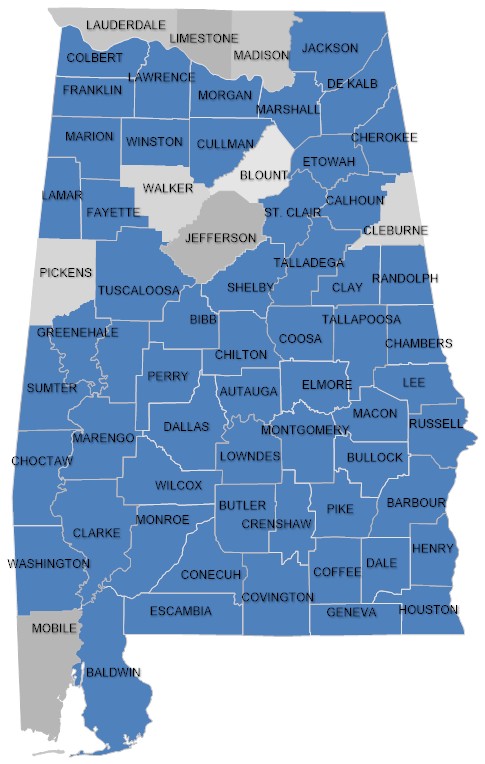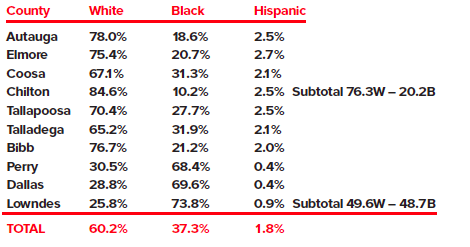
There is available information from ten (10) of the twenty-four (24) cooperatives inn Alabama which is the lowest level of transparency in the twelve (12) states of the South. Men are 48.5% of the state
population, but hold 90.4% of the cooperative board seats. Women are 51.5% of the population, and hold 10.9% of the seats on coop boards. Racially, Alabama is 67% white, 26.7%, and 4.1% Hispanic. Available data on coop participation indicates that 148 members or 95.5% are white, seven (7) are black or 4.5%, and zero (0) are Hispanic.

Alabama Rural Electric Association of Cooperatives
Arab Electric Cooperative
Baldwin EMC
Black Warrior EMC
Central Alabama Electric Cooperative
Cherokee Electric Cooperative
Clarke-Washington EMC
CoosaValley Electric Cooperative
Covington Electric Cooperative
Cullman Electric Cooperative
Dixie Electric Cooperative
Franklin Electric Cooperative
Joe Wheeler EMC
Marshall-DeKalb Electric Cooperative
North Alabama Electric Cooperative
Pea River Electric Cooperative
Pioneer Electric Cooperative Inc.
PowerSouth Energy Cooperative
Sand Mountain Electric Cooperative
South Alabama Electric Cooperative
Tallapoosa River Electric Cooperative
Tombigbee Electric Cooperative
Wiregrass Electric Cooperative![]()
![]()
![]()
![]()
![]()
![]()
